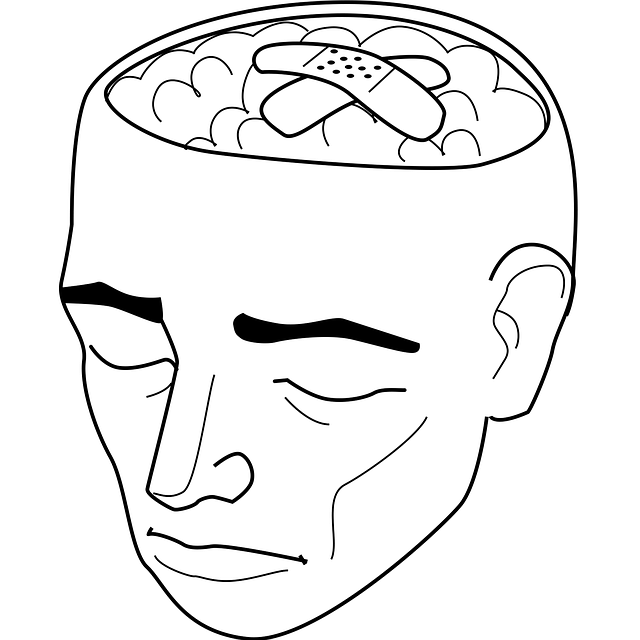Ketamine therapy for mood disorders offers a groundbreaking alternative in mental health treatment, targeting brain chemistry to address PTSD and anxiety, especially resistant cases. By interacting with neurotransmitters like glutamate and serotonin, ketamine rapidly reverses chemical imbalances linked to severe symptoms, presenting hope for effective management of these conditions.
Ketamine, once known primarily as a recreational drug, has emerged as a promising treatment option for severe mental health conditions such as post-traumatic stress disorder (PTSD) and anxiety disorders. This article delves into the transformative potential of ketamine therapy for these debilitating conditions. We explore its mechanism of action, its efficacy in treating PTSD, its role in managing anxiety, and safety considerations. By understanding the latest advancements in ketamine psychiatry, we can appreciate its game-changing impact on mood disorders.
Understanding Ketamine's Impact on Mental Health
Ketamine, a powerful anesthetic and analgesic drug, has gained significant attention in the field of mental health due to its potential benefits in treating post-traumatic stress disorder (PTSD) and anxiety disorders. When administered through controlled ketamine therapy for mood disorders, it offers a novel approach to alleviating symptoms that have proven resistant to traditional treatments.
Research suggests that ketamine can rapidly reverse the brain’s chemical imbalances associated with depression and anxiety by increasing levels of glutamate, a neurotransmitter that plays a crucial role in mood regulation. This mechanism of action provides a promising avenue for individuals struggling with severe or treatment-resistant PTSD and anxiety. Ketamine therapy has shown promise in reducing symptoms such as flashbacks, nightmares, and heightened anxiety responses, offering a glimmer of hope for those who have not found relief through conventional therapies.
How Ketamine Therapy Works for PTSD
Ketamine therapy has emerged as a promising treatment option for Post-Traumatic Stress Disorder (PTSD) and other anxiety disorders, offering a novel approach to managing these complex mental health conditions. This therapeutic agent works by interacting with the brain’s neurotransmitter systems, particularly those involved in mood regulation and pain perception. When administered in a controlled clinical setting, ketamine can induce a state of altered consciousness, allowing the brain to reorganise and reprocess traumatic memories associated with PTSD.
The mechanism behind its effectiveness lies in its ability to enhance NMDA (N-methyl-D-aspartate) receptor function, which plays a crucial role in learning, memory, and emotional processing. By modulating these receptors, ketamine therapy can help reduce the intensity of negative emotions and flashbacks experienced by individuals with PTSD. Moreover, it has been shown to increase levels of brain-derived neurotrophic factor (BDNF), a protein that supports neuronal growth and resilience, potentially fostering a more positive mood state over time in patients with mood disorders.
Treating Anxiety Disorders with Ketamine
Ketamine therapy has emerged as a promising treatment option for anxiety disorders, offering a unique approach to managing symptoms that traditional therapies may struggle to address. This powerful compound, once primarily known for its anesthetic properties, is now recognized for its potent effects on the brain’s neurotransmitter systems, particularly glutamate and serotonin. By targeting these systems, ketamine can help regulate emotional responses and reduce the intensity of anxiety symptoms.
In the context of ketamine therapy for mood disorders, this drug interacts with NMDA (N-methyl-D-aspartate) receptors in the brain, modulating excitatory neurotransmission. This action is particularly beneficial for individuals with anxiety disorders who often exhibit heightened glutamate activity. Clinical studies have shown that controlled ketamine administration can lead to rapid and significant reductions in anxiety, providing relief that may not be achieved through conventional treatments alone. As a result, many healthcare professionals are incorporating ketamine therapy into comprehensive treatment plans for PTSD and other anxiety-related conditions, offering patients a potentially life-changing alternative.
Safety and Future Directions in Ketamine Psychiatry
Ketamine, a drug originally developed as an anesthetic, has shown promise in treating various mental health conditions, including PTSD and anxiety disorders. While its use in psychiatry is still evolving, early research suggests that ketamine therapy for mood disorders could offer a safe and effective alternative or adjunct to traditional treatments. The drug’s mechanism of action involves interacting with NMDA receptors in the brain, modulating neural activity, and potentially reducing symptoms associated with trauma and stress.
The safety profile of ketamine is an area of growing interest in psychiatry. Short-term administration has generally been well-tolerated, with the most common side effects including dizziness, nausea, and headache. Long-term studies are needed to fully understand the drug’s potential risks and benefits, particularly for individuals with co-occurring conditions or a history of substance use. Future research should focus on optimizing dosing, delivery methods, and identifying specific patient populations who may benefit most from ketamine therapy for mood disorders, paving the way for more personalized and effective mental health care.
Ketamine therapy emerges as a promising treatment option for individuals suffering from PTSD, anxiety disorders, and other mood disorders. By understanding how ketamine interacts with neural pathways, we can harness its potential to provide swift relief from debilitating symptoms. Further research is needed to explore safe and effective long-term administration, but initial findings suggest that ketamine could revolutionize psychiatric care, offering a glimmer of hope for those seeking lasting solutions to these complex conditions. As the field of ketamine psychiatry continues to evolve, we can anticipate more tailored treatments and improved quality of life for patients.
